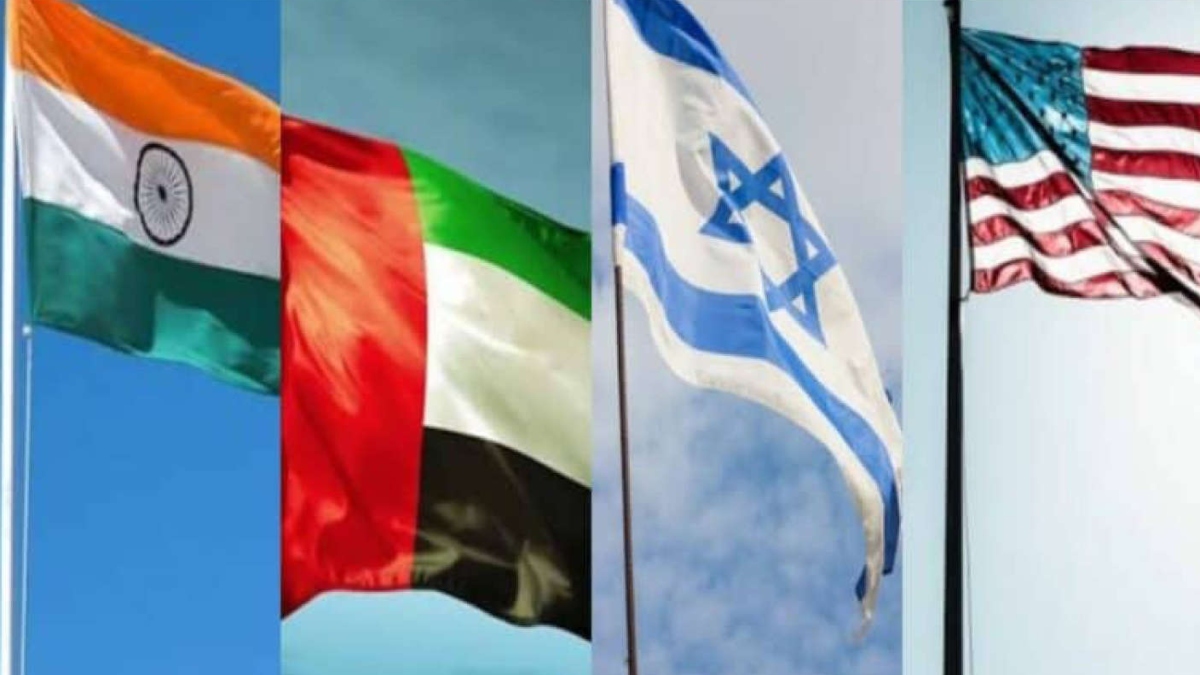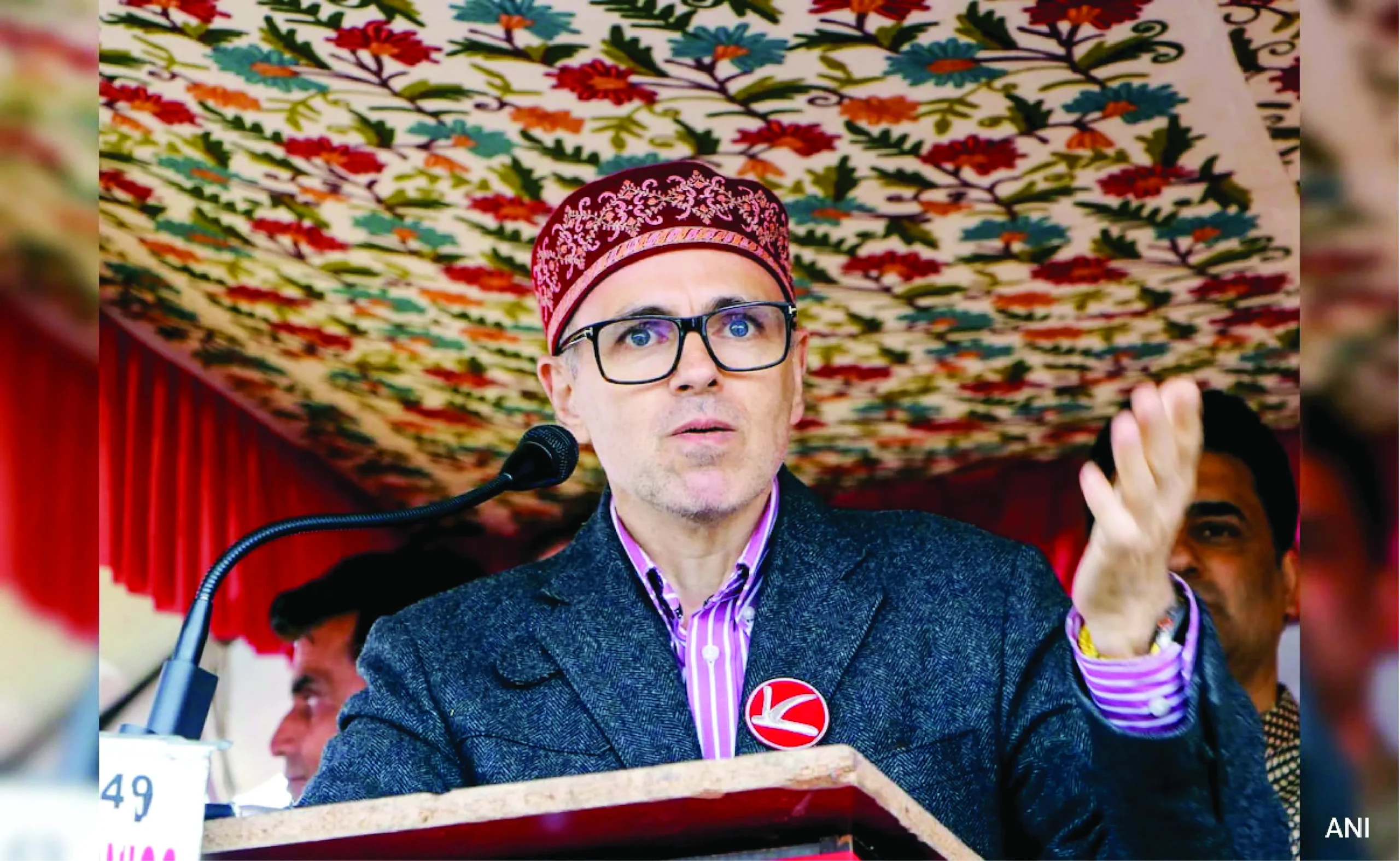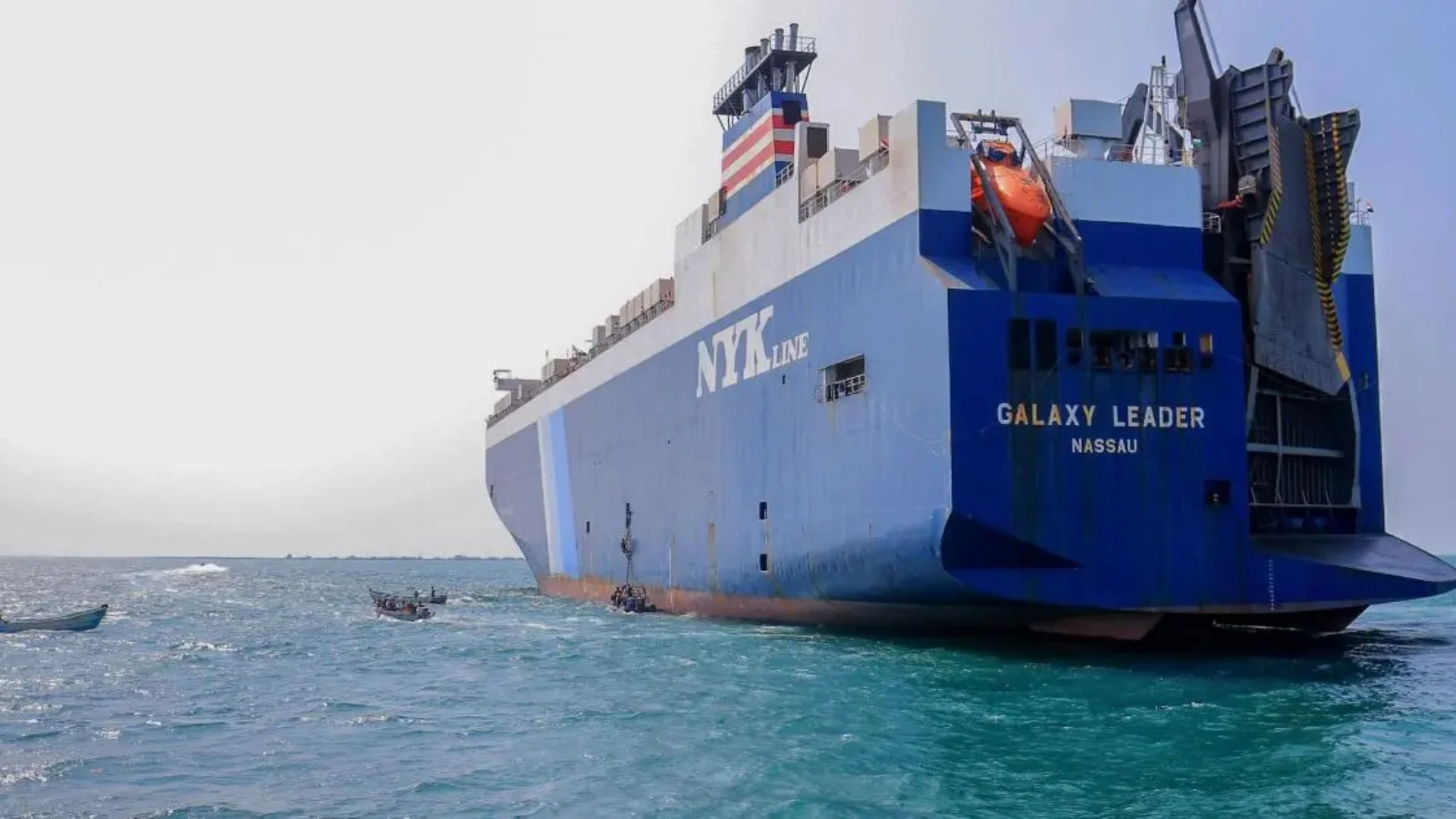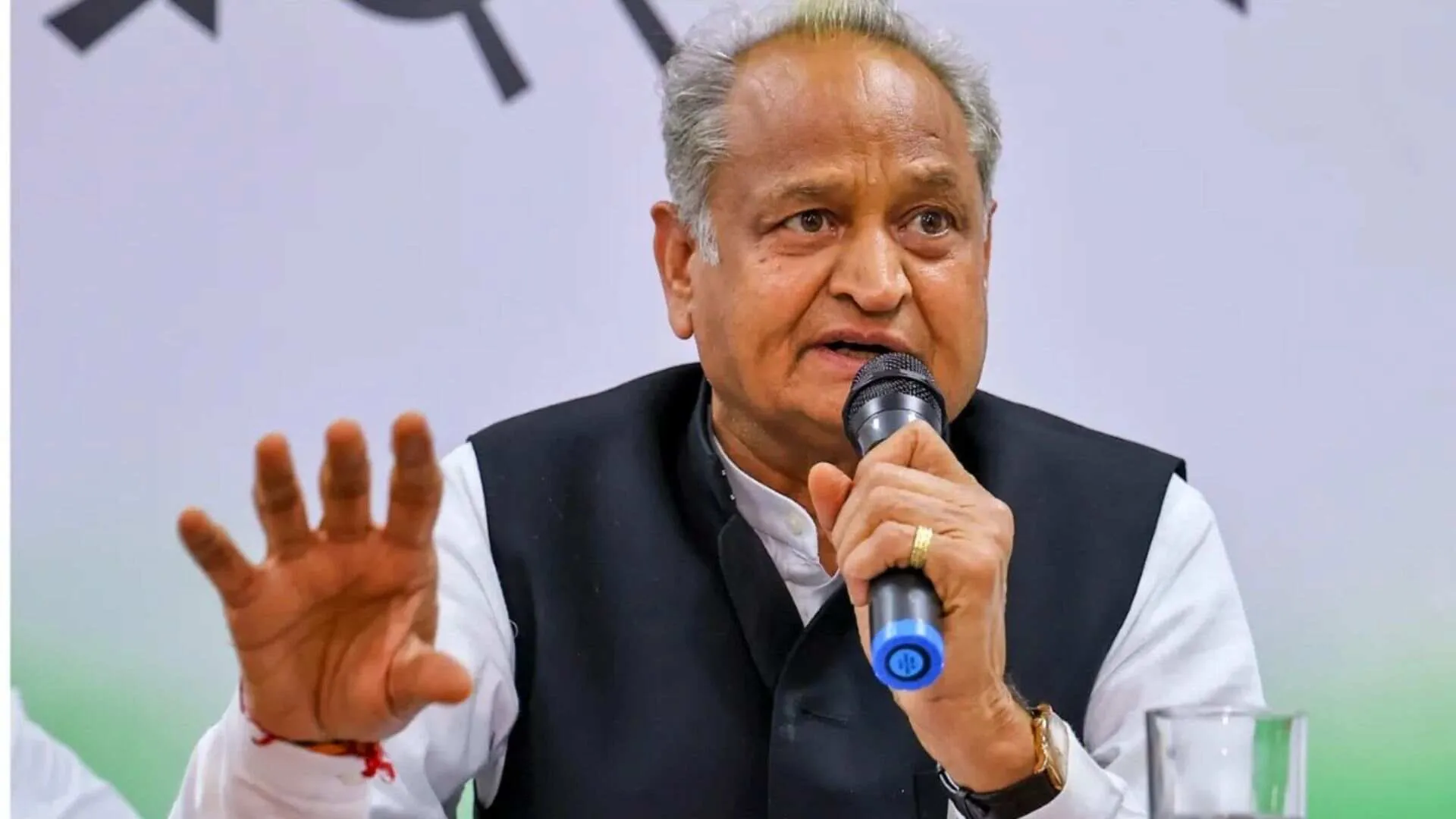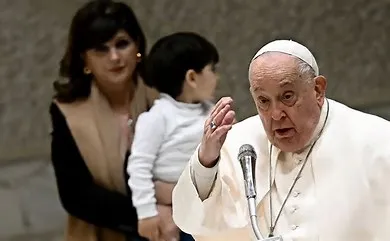On the one hand, when Russia and Ukraine are locked in a tussle that has cost the entire world heavily in terms of major food, energy and humanitarian crisis, nations are associating and collaborating through difference multilateral platforms to take up various global challenges as well as objectives. After the grand success of the revived Quad (Quadrilateral Security Dialogue), India and the US are ready to open another arena of engagement, this time with Israel and the UAE, as the new I2U2 forum.
A new grouping of India-Israel (I2) and UAE-US (U2) has been formed by the four nations, which has been referred as the “West Asian Quad” by the ambassador of UAE to India, Ahmed Al Banna. The framework of the group was formed in October 2021, when the grouping of the four nations—India, Israel, United Arab Emirates, and the United States—met for the first time and decided to set up I2U2 keeping the issues related to maritime security, digital infrastructure, infrastructural development, defence and climate change containment at the epicentre.
Geopolitically, it is focused on expanding economic and political cooperation in West Asia and Asia through strengthening diplomatic relations in different domains such as trade. The objective also includes finding comprehensive solutions to the global challenge of climate change. The nations also agreed to work in the areas of energy cooperation through this joint platform.
In October 2021, when External Affairs Minister S. Jaishankar visited Israel, the foreign ministers of the four countries met and the framework of I2U2 was constituted with the name, “International Forum for Economic Cooperation”. It was then decided that the heads of the four nations would meet through the first summit of I2U2 when US President Joe Biden would visit West Asia between 13-16 July. Biden would be visiting West Asia for the first time after becoming the US President. The noteworthy point is that he would also be visiting Israel. The first summit of I2U2 will be joined virtually by Prime Minister Narendra Modi.
Looking at the level of bilateral relations, the matrix has to be understood well. The relations between India and the US, India and Israel, India and UAE, US and Israel are positive and progressive. Relations between US and UAE seem to be positive, and are expected to be moving in further collaborative direction especially in the area of energy security. Last but not the least, despite the normalization of relations between Israel and UAE in August 2020, the question of their age-old negative relationship may work as an irritant. However, considering the overall matrix, I2U2 seems to be a strategically important engagement for the future considering the focus areas.
Biden would also visit Jeddah and Saudi Arab during his visit, and he would also be attending the significant summit of GCC+3 (Gulf Cooperation Council plus Egypt, Iraq, and Jordan). Apart from the summit, he would also be having bilateral talks with all these nations. Considering Biden’s restricted communications with the Saudi royals, especially after the killing of Jamal Khashoggi, a Saudi journalist, it would be interesting to see what comes out of Biden’s visit to Saudi Arabia. This meeting would be closely monitored as has called Saudi Arabia a “pariah” state and believes in the involvement of Saudi Prince’s involvement in Khashoggi’s killing based on an intelligence report, although Donald Trump had an opposite view and thus, he maintained amicable relations with the Saudi royals.
However, things seem to changing since Biden became the President as he has initiated several multilateral initiatives and dialogues to strengthen defence, cultural and diplomatic relations of the US, globally. Biden has not only strengthened the Quad, he also revived the AUKUS, the three-nation alliance with Australia and the United Kingdom. He also started a quadrilateral dialogue with Afghanistan, Pakistan, and Uzbekistan. On the one hand, he is focusing on strengthening such platforms, and, on the other hand, he is leaving no stone unturned in containing China and Russia’s globally.
India would certainly be playing a critical role in the I2U2. Being a neutral nation so far, India is the only nation that is a part of the Quad as well as BRICS (Britain, Russia, India, China and South Africa). Both have positive global and regional goals to attain; however, the interesting fact is that the Quad aims to contain China’s influence in the Indo-Pacific region, while BRICS is considered as a counter-defensive mechanism against the western block, especially NATO (North Atlantic Treaty Organization). Being a member nation of both the alliances, India seems to be playing a critical role in executing the balancing act.
Today, Ukraine is in a devastated state and there is a crucial question that remains unanswered: where will this all take us? Ukraine shares its cultural identity with Russia, and was its part until the disintegration of the erstwhile USSR in 1991. After this historic disintegration, the Cold War ended. The world was also observing a neo-liberal way of globalization, and ushered in to a new era of multi-polarity where the definition of power itself had changed. Though the US was the clear-cut winner of the Cold War, and remained the hegemon in world politics since then, new centres of power also emerged such as China. Moreover, the world witnessed a big change in terms of priorities of the countries that led them to connect with each other irrespective of their ideological or historical differences. Although Russia remained a major power, it had lost the glory of the leader of the eastern bloc. The military alliance it created with the support of other anti-west countries, backed by Warsaw pact, also declined eventually. However, on the other hand, the NATO, the military alliance created by the western bloc during the Cold War days, not only kept flourishing, it also started providing membership to the countries disintegrated from Russia. Slowly, Europe, especially the eastern part, started looking like getting NATO-fied. When Putin came into the power, he not only fiercely started working against this westernization of the countries around Russia, he also declared to work for reunification of Russia to get back its lost glory.
After attacking and establishing its bases in Georgia in 2008, Putin ruthlessly attacked and controlled Crimea in 2014 to keep a control over the passage to Black Sea. Since the world kept mum at both these attacks, Putin made it clear that he will not allow Ukraine to be a member of NATO, which was justified in a way, as who would allow his biggest enemy to reach his doorstep? As Ukraine did not pay any attention to the warnings of Putin, the world today witnesses the most brutal attack on Ukraine from the Russian army. Putin strategically encircled Ukraine, starting from the Eastern Ukraine where the pro-Russian separatist groups were already active. Zapped Volodymyr Zelenskyy expected help from the US, who pushed him not to step back from becoming a member of NATO as well as the NATO alliance countries. But soon he realised how he was trapped and used by the western lobby against Putin. US made it very clear that it will not fight any war on Ukraine’s soil, nor any NATO member country came forward to directly help Zelenskyy. After the first wave of shock, NATO member countries and the US announced economic sanctions, indirect support to Ukraine by seizing the air and maritime space for Russia, stopping all business with Russia and providing arms support to Ukraine. Despite all this, Putin did not stop.
Today, the situation seems to be in a deadlock where neither Putin is stopping the war, nor Ukraine is stepping back. Threats of nuclear, biological and chemical warfare are also emerging. In today’s multipolar world of diversified dimensions of engagements, why is this war happening in the first place? Who will stop it? The UN seems to be in a spot where its relevance itself has become a big question. Talks between Russian and Ukrainian officials are not concluding with any results. Ukraine is already destructed, Russia is also bleeding, China is preparing to be the next aggressor in the Asian theatre and a new arms race has started. War cannot be an answer to any differences, but it can make a remarkable difference to the world; this should not be forgotten.
Presently, there seems to be multi-dimensional challenges globally. From the grave Ukraine-Russia conflict to coming out of the shadow of Covid-19 to working for climate change containment to developing innovative and sustainable technologies to enhancing collaboration in the areas of counter-terrorism, food security and energy security; there seems to be a long list of prioritised objectives. Instead of working in a compartmentalised fashion, today’s nations are preferring to be working in a “team play” mode. Considering the same, I2U2 seems to be an optimistic development, presenting a unique alliance among the four significant nations.
Dr Anshu Joshi is Professor, School of International Studies, JNU.
In October 2021, when External Affairs Minister S. Jaishankar visited Israel, the foreign ministers of the four countries met and the framework of I2U2 was constituted with the name, “International Forum for Economic Cooperation”. It was then decided that the heads of the four nations would meet through the first summit of I2U2 when US President Joe Biden would visit West Asia between 13-16 July. Biden would be visiting West Asia for the first time after becoming the US President. The noteworthy point is that he would also be visiting Israel. The first summit of I2U2 will be joined virtually by Prime Minister Narendra Modi. India would certainly be playing a critical role in the I2U2. Being a neutral nation so far, India is the only nation that is a part of the Quad as well as BRICS. Both have positive global and regional goals to attain.

